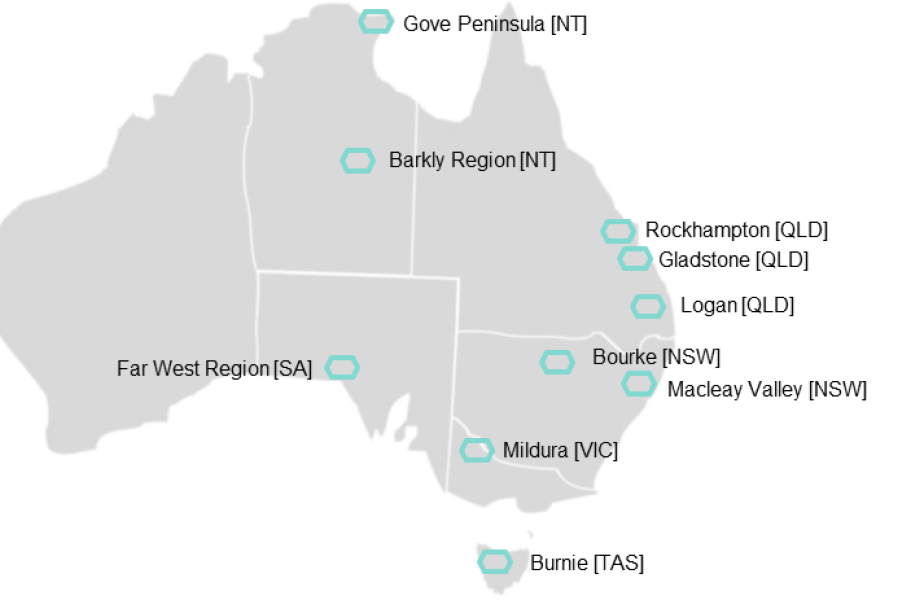The challenge
There is significant government and philanthropic investment in a number of communities experiencing disadvantage across Australia, yet positive changes have often been limited. Recent events, including widespread drought, bushfires and the global coronavirus pandemic, have presented additional challenges for communities.
Most experts agree that no single policy, government department, organisation or program can solve the complex problems facing most children and families living in communities where disadvantage is concentrated. Ongoing engagement with a community to assess its strengths, needs and existing investment is required to make informed decisions that are driven by the community. This approach can allow real change to be enacted.
The response — working in partnership, working differently
Stronger Places, Stronger People is overseen by the Australian Government in partnership with state and territory governments and 10 communities across Australia. It seeks to disrupt disadvantage and create better futures for children and their families through locally tailored and evidence-driven solutions to local problems, in partnership with local people.
A unique feature of collective impact is the shared commitment to a local strategy by communities, governments, service providers and investors, with shared accountability for planning, decision-making and results.
The Australian Government committed up to $35 million to the first 5-year phase of the Stronger Places, Stronger People initiative until 30 June 2024. A further $64 million has been committed over 6 years to 30 June 2029 to extend and enhance the existing partnerships under the initiative. There is also significant investment from state and territory governments and in some cases philanthropic organisations.
Stronger Places, Stronger People communities
Stronger Places, Stronger People has commenced in 10 communities. These include:
- Logan Rockhampton and Gladstone in Queensland
- Bourke and the Macleay Valley (including Kempsey) in New South Wales
- Mildura in Victoria
- Burnie in Tasmania
- the Far West Region of South Australia (including Ceduna)
- the Barkly Region (including Tennant Creek) and Gove Peninsula in the Northern Territory.

Several factors are considered when selecting partner communities, including:
- markers of disadvantage
- existing community collaboration
- strong local leadership
- established local governance structures
- a promising degree of readiness to work differently
- an existing collective impact practice is preferred
- a level of social cohesion and
- a shared vision for change.
Supporting Stronger Places, Stronger People communities
Stronger Places, Stronger People communities receive funding to support a local project team (‘backbone team’) in each community. The backbone team facilitates:
- local planning
- inclusive engagement
- measurement and evaluation
- joint decision-making
- governance
- local action.
The backbone team works with, and is accountable to, a local community leadership group, supporting the community in developing and implementing their tailored strategy and plan of action.
Communities also receive funding for capacity building support, which is provided to enable local backbone teams to develop the skills and expertise necessary to implement community action plans.
National Leadership Group
The Stronger Places, Stronger People National Leadership Group was established in 2019 as an advisory body for the initiative. The National Leadership Group was convened to drive and shape the strategy and approach to implementing the initiative.
The National Leadership Group brings together leaders from communities, business, philanthropy, academia and service delivery, along with Special Advisors from the Commonwealth and state/territory governments.